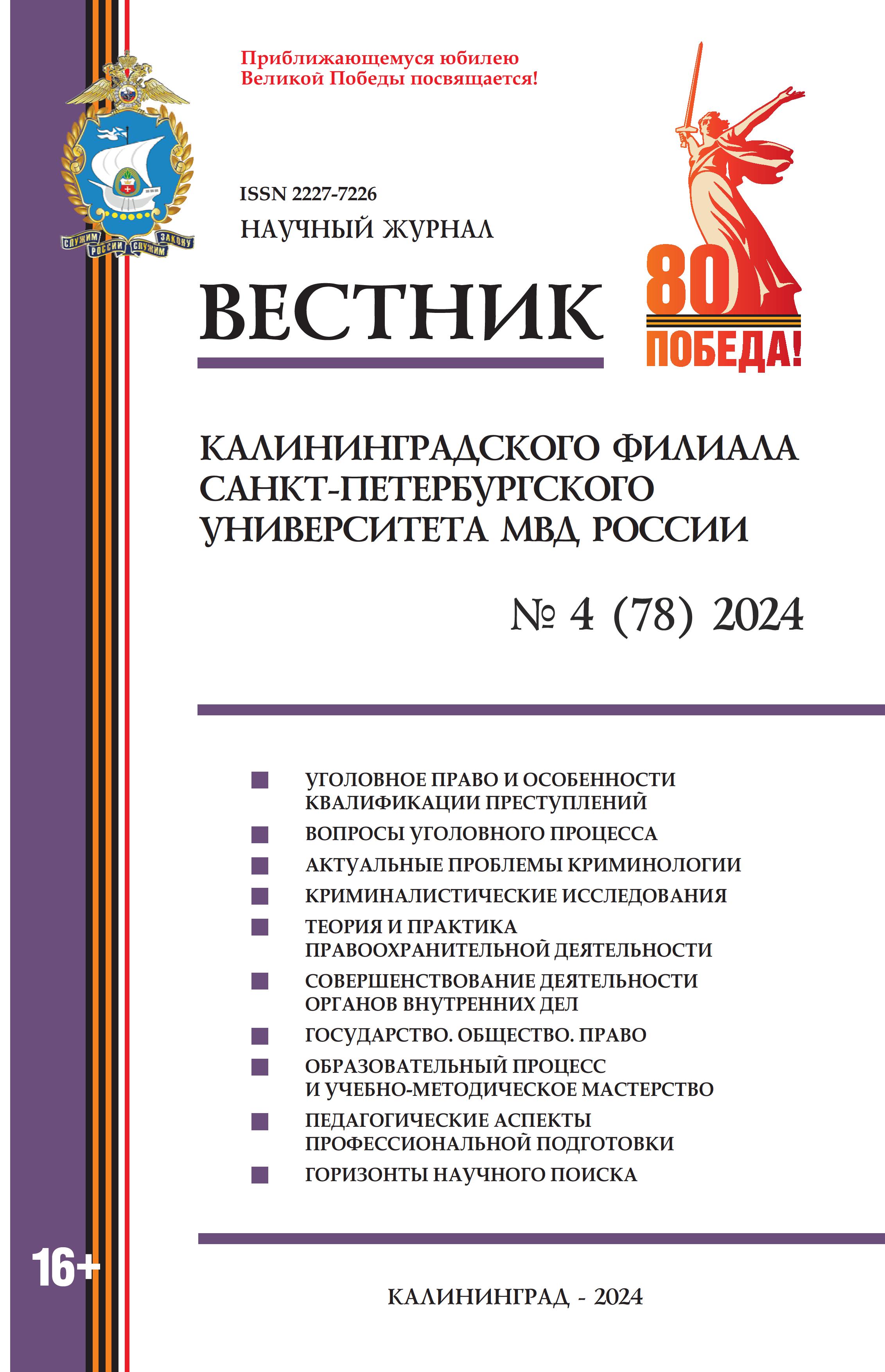employee
Saint Petersburg, St. Petersburg, Russian Federation
Introduction. Ensuring secrecy in operational-investigative activities (hereinafter referred to as OIA) and protecting state and official secrets are associated with the forced disclosure of certain previously classified operational-investigative information in order to solve the tasks of OIA and criminal proceedings, as well as with intentional or accidental disclosure of information about covert forces, means and methods of OIA containing state or official secrets. At the same time, a uniform understanding by theorists and practitioners of the essence of the concepts of «publicization» and «disclosure of information» seems to be a guarantee of their correct legal interpretation and use, as well as an increase in the level of efficiency of activities to directly ensure secrecy. Scientists note the lack of unity of views on these concepts, which gives rise to a collision of their scientific understanding and applied use. In the context of the study of the private theory of secrecy in operational-investigative activities, the author of the article analyzes the modern views of the legislator and legal scholars on the listed aspects. Methods. The study used dialectical and formal-logical general scientific methods, comparative-legal method and the method of content analysis of regulatory legal acts. A comparative and substantive analysis of a number of federal laws, codes and scientific views of modern scientists on the issue under consideration was conducted. Results. The author comes to the conclusion that «publicization in operational-investigative activities» is «a lawful targeted activity of officials of the bodies carrying out operational-investigative activities to disclose information or data that are a state or official secret to a specific person, a specific or unspecified group of persons in order to solve operational-search tasks». At the same time, «disclosure of information» in operational-investigative activities can be presented as «intentional or careless disclosure in any (active or passive) form of confidential information to third parties without the appropriate permission of a person to whom this information is known in connection with his professional or other lawful activities».
Operational-investigative activity, private theory of secrecy, secrecy in operational-investigative activity, ensuring secrecy, institute of secrecy, conspiracy, making public, disclosure of information.








